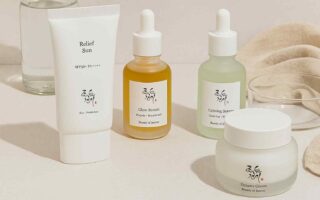If you’ve ever noticed tiny, fine lines appearing on your skin that don’t seem like traditional wrinkles, you might be dealing with dehydration lines. These subtle lines can sneak up on anyone, often mistaken for early aging signs. But unlike wrinkles caused by aging, dehydration lines stem from a lack of moisture in your skin. Understanding what dehydration lines are, how to care for them, and preventing their return is key to maintaining a radiant, youthful complexion. In this article, we’ll explore everything you need to know about dehydration lines, from causes and symptoms to expert tips and product recommendations.
What Are Dehydration Lines?
Dehydration lines are fine, shallow lines that appear when your skin lacks adequate water. Unlike wrinkles, which are deeper and linked to the breakdown of collagen and elastin, dehydration lines can happen even if you’re young. These lines usually look like tiny cracks or creases on the surface of the skin, especially in areas like around the eyes, forehead, and mouth. The skin feels tight, dull, and sometimes flaky. Because dehydration affects your skin’s barrier, these lines can make your complexion look tired or older than it really is.
Difference Between Dehydration Lines and Wrinkles
It’s important to distinguish dehydration lines from true wrinkles. Wrinkles are permanent and develop over time as skin loses elasticity due to aging, sun damage, or lifestyle factors. Dehydration lines, however, can be reversed with proper hydration and skincare, as they indicate temporary dryness rather than structural damage.
Causes of Dehydration Lines
Understanding what causes dehydration lines helps you tackle the root of the problem effectively. Here are some common triggers:
Environmental Factors
- Cold, dry weather: Winter air strips moisture from your skin, leading to dehydration.
- Sun exposure: UV rays damage the skin barrier, causing moisture loss.
- Air conditioning and heating: Both can dry out the skin indoors.
Lifestyle Habits
- Not drinking enough water: Hydration starts from within, so insufficient fluid intake can show on your skin.
- Excessive caffeine or alcohol: Both act as diuretics, increasing water loss.
- Harsh skincare products: Over-cleansing or using alcohol-based toners can disrupt your skin’s natural moisture balance.
Skin Conditions and Aging
- Sensitive or compromised skin barrier: When the protective barrier is weak, skin can’t retain moisture effectively.
- Natural aging process: As we age, skin produces less oil, which helps lock in hydration.
How to Identify Dehydration Lines on Your Skin
Recognizing dehydration lines early can prevent unnecessary worry about aging and help you adjust your routine promptly.
Common Signs
- Fine lines that look like tiny cracks, especially noticeable when you move your face.
- Skin that feels tight or uncomfortable after washing.
- A dull, flaky, or patchy complexion.
- Makeup that looks uneven or settles into fine lines quickly.
If these signs sound familiar, your skin might be crying out for more moisture.
Effective Skincare Routine to Combat Dehydration Lines
The good news? Dehydration lines are reversible. With a targeted skincare routine, you can replenish moisture and restore your skin’s smoothness.
Cleanse Gently
Choose a hydrating, gentle cleanser that doesn’t strip your skin of natural oils. Avoid foaming or sulfates-heavy cleansers that can worsen dryness.
Hydrating Toners and Essences
Incorporate a hydrating toner or essence after cleansing to prep your skin and lock in moisture. Look for ingredients like hyaluronic acid, glycerin, and aloe vera.
Use a Serum Focused on Hydration
Serums rich in hydrating ingredients can penetrate deeply. Hyaluronic acid serums are a must-have as they hold up to 1000 times their weight in water.
Moisturize Regularly
Pick a moisturizer suited to your skin type but rich in emollients and humectants to keep your skin barrier strong and hydrated.
Protect With Sunscreen
Sun damage exacerbates dehydration lines, so daily sunscreen use is crucial to prevent moisture loss and further damage.
Product Recommendations for Dehydration Lines
Here are some tried-and-true products that many beauty experts recommend for combating dehydration lines:
| Product Type | Suggested Ingredients | Why It Helps |
|---|---|---|
| Gentle Cleanser | Ceramides, glycerin | Protects skin barrier, retains moisture |
| Hydrating Serum | Hyaluronic acid, vitamin B5 | Deep hydration and skin repair |
| Moisturizer | Squalane, niacinamide, shea butter | Locks moisture, strengthens barrier |
| Sunscreen | Broad-spectrum SPF 30+, antioxidants | Prevents UV-induced moisture loss |
| Overnight Mask | Aloe vera, peptides | Intensive hydration and repair |
Home Remedies to Help Hydrate Your Skin
If you prefer natural remedies, a few simple ingredients from your kitchen can boost your skin’s moisture:
- Honey: Natural humectant that locks in moisture.
- Aloe Vera Gel: Soothes and hydrates dry skin.
- Coconut Oil: Great for dry areas, but use sparingly on oily skin.
- Cucumber Slices: Cooling and hydrating for tired skin.
Remember, these work best as a supplement to a proper skincare routine.
Lifestyle Tips to Prevent Dehydration Lines
- Drink plenty of water: Aim for at least 8 glasses a day.
- Use a humidifier: Especially in dry climates or during winter.
- Limit caffeine and alcohol: To reduce dehydration effects.
- Avoid hot, long showers: Hot water strips away natural oils.
- Get enough sleep: Sleep helps skin regenerate and maintain moisture.
FAQs About Dehydration Lines
Q1: Can dehydration lines turn into wrinkles?
A: Dehydration lines are temporary and often reversible. However, if left untreated, chronic dryness may contribute to the development of permanent wrinkles.
Q2: How quickly can hydration improve dehydration lines?
A: With consistent skincare and hydration, many notice improvements within a few days to a couple of weeks.
Q3: Is drinking water enough to fix dehydration lines?
A: Drinking water helps, but topical hydration through serums and moisturizers is equally important to retain moisture in the skin.
Q4: Can oily skin get dehydration lines?
A: Yes, all skin types can suffer from dehydration, even oily skin. Hydration isn’t the same as oiliness.
Q5: Are there any ingredients I should avoid if I have dehydration lines?
A: Avoid harsh alcohols, sulfates, and heavy fragrances that can further dry out and irritate the skin.
Conclusion: Your Journey to Smooth, Hydrated Skin
Dehydration lines can be frustrating, but they’re a clear signal that your skin needs a little extra TLC. By understanding their causes and adapting your skincare and lifestyle habits, you can restore that fresh, youthful glow with confidence. Remember, hydration is the foundation of healthy skin inside and out.
If you’ve struggled with dehydration lines or have your own tips to share, I’d love to hear from you! Drop a comment below or share this article with friends who might benefit. Let’s glow together!



